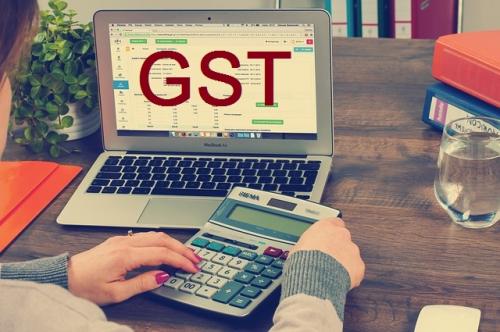The GST registration Rules for UTGST

India is a diverse nation, which
comprises 29 states and 7 union
territories. The newly implemented Goods and Services Tax, ultimately hitting
the nation with a storm, was implemented all over the Indian states with some
minor changes to some selected states. But the concept of taxation in the union
territories is less-known and talked about. In India, the major business hubs
come under the category of states and only and most of the businesses
registered under the GST regime are able to do business in their state boundaries
only. That’s the prime reason the exposure on the UTGST is not much.
What is
UTGST?
UTGST simply stands for Union
Territory Goods and Services Tax. With the inclusion of UTGST in the new tax
regime, the constitutional obligation was completed as the government added
Clause 26B in the article 366. This clause was included to ensure the separate
mentioning of the union territory in the legislation. The prime reason behind
introducing UTGST was to levy taxes on the supply of goods and services union
territories and from them to other states of India. And the fact that
introduction of UTGST, with similar features as SGST, ensures the legislation,
which is primarily absent in the union territories as they are rules by the
central government.
The
agenda
As it is clear that UTGST fulfills
the provisions of the SGST, the GST Council, for the ease of the taxation, set
up the apex body that could take control of the flow of the taxation in the
union territories. Besides, the provision of the apex body, New Delhi and
Puducherry having their own legislatures, operate freely under the GST regime
while properly complying with the rules and regulations of SGST and are also
considered as ‘states’ only by the council.
As per the Article 246(4) of the
constitution of India which states that the Parliament holds the power to
formulate laws, if in case required, for any part of the territory of India, in
any matter or concern. As per this rule, the supply of goods and services
within the union territory would consist of CGST and UTGST. And as far as the
input tax credit is concerned, the calculation of utilization would also be
equivalent to the State Goods and Services Tax.
The
process
The process of registration is
same as the India GST
registration rules that rest of the other states comply with. The
person having an income more than 20 lakh is supposed to get registered under
the Goods and Services Act and also get the unique identification number,
GSTIN. So, almost every rule is same as the normal GST. The government, with
the idea of simplicity and reduced hassle, has made the process similar which
wasn’t expected earlier during the time of the GST implementation. And if it
wasn’t for the legislative purpose, the government wouldn’t even have
interfered with the union territories at first. But good that the government
did, now every supply of the goods and services is under the proper scrutiny of
the GST Tax Act.
How is
the tax levied?
If the supply of the goods and
services is made within the union territory then, as per GST rules, CGST and
UTGST will be levied.
For example- A furniture shop in
Chandigarh supplies 100 chairs worth INR 10,000 to another furniture shop in
Chandigarh only. If the GST rate applicable on that particular supply is to be
assumed 12% then both CGST and UTGST will attract 6% of the tax each.
Cost of the supply- INR 10,000
CGST 6%- INR 600
UTGST 6%- INR 600
Total cost- INR 11,200
Similarly, if the supply of the
goods and services is made from a union territory to another union territory or
state, then IGST will be levied.
For example- A furniture shop in
Chandigarh supplies 100 chairs worth INR 10,000 to a furniture store in Delhi,
then, assuming the GST rate applicable of 12%, IGST alone will attract the
complete tax amount.
Cost of the supply- INR 10,000
IGST 12%- 1200
Total cost- INR 11,200
Summary
The addition of the UTGST in the
Goods and Services taxation regime has simplified the processing of the
taxation in the union territories of India and also it keeps the constitutional
decision making powers and authorities in the correct position.
Post Your Ad Here
Comments